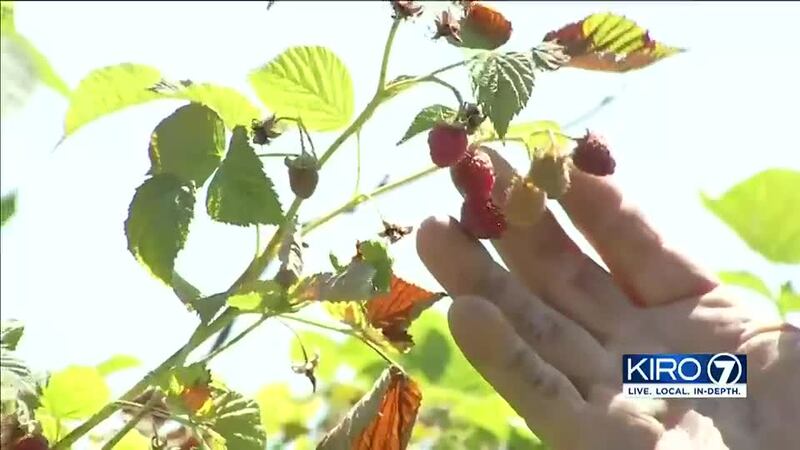LYNDEN, Wash. — The raspberries growing high on the rows of vines Rolf Haugen has cultivated on his Lynden farm for 41 years should not look like this on July 5.
“They’re sunburned and shriveled,” said Haugen, who says he has never seen such damage from the heat of a single day — June 28, when temperatures reached 108 degrees on his farm — and the highest in recorded history for Lynden. Haugen, who also manages the Northwest Berry Co-op, which processes the raspberries of 30 family farms in Whatcom County. “These were ripe berries at the time and the sun just boiled the juice right out of them,” he said, estimating the heat scorched and ruined 30 to 40% of this season’s crop, which supplies 80% of North America’s processed raspberry supply, which is typically 65 million pounds of the sweet red berries.
The raspberries filling your donut? In your jar of major brand jam? They probably were grown in this area.
Blueberries took a major hit from the heat, too. Some of the fruit which was unshielded by leaves have shrunk to a dark pink or light brown color. Haugen says some family farms facing thin margins may not survive this loss unless they get Federal disaster relief.
“We’ve sent pictures to Washington DC, and to people here,” Haugen said. “The canes which store up energy for next year’s berries are also damaged,” he said, suggesting the heat effect may extend for another year.
Three generations of Haugen’s family work the farm as a labor of love, filling cartons with raspberries, hoping next year will be better, looking at the bright side. “There won’t be any leftover inventory this year,” he said.
©2021 Cox Media Group







